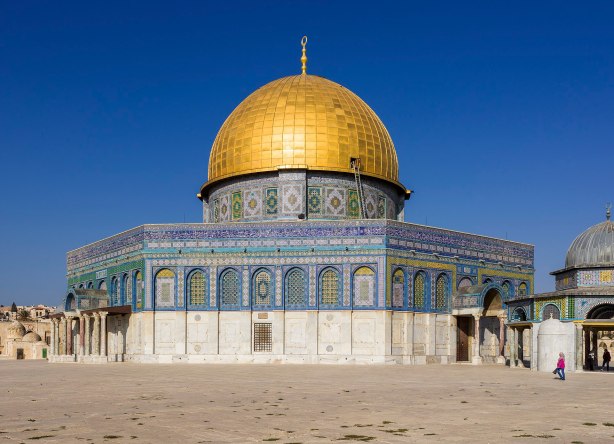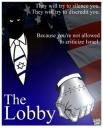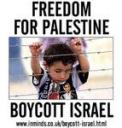This is PART II. Part I stated that the evidence seemed fabricated. I am posting this especially after seeing the movie, Rendition. Fiction? You be the judge.
Judge declares mistrial in Holy Land Foundation case
01:32 PM CDT on Monday, October 22, 2007

The Holy Land Foundation terrorism-financing trial ended in a mistrial Monday after the jurors deadlocked on most of the counts. One of five defendants was acquitted of all but one charge against him.
Mohammad El-Mezain, the Holy Land’s original chairman and endowments director — was acquitted on most of the counts by a unanimous jury. The mistrial will not affect his acquittals, but he could still face prosecution on a charge of conspiracy to provide material support to terrorism.
A government prosecutor said the Justice Department will retry the case on the charges where the jury reached no verdict.
Earlier in the day, the jury forewoman told the judge that Mufid Abdulqader, a top Holy Land fundraiser and former Dallas public works supervisor, had been found not guilty on all counts. Abdulrahman Odeh, the foundation’s New Jersey representative, was also acquitted on most of the charges. She also said the jury was unable to reach a decision on all the other counts.
When polled, some jurors told the judge that they did not agree with the verdicts on Mr. Abdulqader and Mr. Odeh.
U.S. District Judge Joe Fish then ordered the jury to discuss whether further deliberations might allow them to reach a decision.
“Your verdict must be unanimous and it’s apparent to me from the answers of three members of the jury in respect to my question that the verdicts that I read earlier do not represent the unanimous view of the jury,” Judge Fish said.
But after deliberating for another 45 minutes Monday morning, 11 of 12 jurors agreed that further deliberations would not change their decisions. It was then that the judge declared a mistrial.
The five defendants have had an unexpected four-day wait to learn their fate after the verdict was sealed on Thursday because the judge was out of town. This delay came after 19 days of deliberations and a two-month trial.
None of the defendants are accused of committing or directly sponsoring any violent acts. The government had contended that the five Holy Land defendants, all but one a U.S. citizen, sent more than $12 million to Palestinian charity committees that they knew to be controlled by the outlawed group Hamas, which has targeted Israeli civilians for more than a decade.
Defense attorneys say their clients ran a legitimate charity and had no terrorist ties.
The most serious charge would have carried a penalty of up to 20 years in prison.
The Holy Land Foundation had been the largest Muslim charity in the U.S. until it was shut down by President Bush. The case was the biggest terror finance trial in U.S. history.
Defense attorneys and Holy Land supporters have long called the case a politically-driven prosecution prompted by pressure from the Israeli government and shot through with post 9/11 anti-Muslim bias.
A common and sustained criticism of the U.S. government’s 14-year investigation of Holy Land and other foreign charities thought to be supporting overseas terrorism is that the investigations are politically motivated and driven by post-9/11 racial prejudice against Arabs.
Failure to secure convictions on the some charges comes on the heels of two high-stakes losses in two other similar terrorism financing cases.
Earlier this year, an Illinois jury acquitted a Chicago-area businessman on charges that he and a co-defendant aided Palestinian terrorists. Two years earlier, a Florida professor also was found not guilty on similar terrorism-support charges, and the jury deadlocked on several other charges.
The government, however, has gotten guilty verdicts on terrorism support charges, particularly in New York and Virginia. But none of those cases were against an entity the size of Holy Land.
Between 1992, the year Holy Land relocated from California to Richardson, and when Bush administration regulators shut it down in December 2001, Holy Land took in about $57 million.
During the trial, the government put on evidence showing that those committees were staffed and controlled by the violent Islamic group Hamas, which has sponsored hundreds of suicide bombings often targeting Israeli civilians.
The government’s chief witness about the link between the Palestinian charity committees was an Israeli Shin Bet counterterrorism official testifying under the pseudonym “Avi.”
He was able to name board members for nearly all the committees who were Hamas, even identifying some as members of Hamas military section, which helps coordinate suicide bombings. Some of the affiliations were such common knowledge in the region that he said they were written about in the press.
The defense, however, countered with the former No. 2 intelligence official at the State Department, Edward Abington. He told jurors that although he got daily CIA briefings for years while stationed in Jerusalem as consul general, he never was told that the Palestinian charity committees Holy Land gave money to were part of Hamas.
Prosecutors also told jurors that Holy Land’s humanitarian contributions helped Hamas’s social wing win popular support for its violent agenda against the Israelis. The former Richardson charity, according to the government, also singled out survivors of suicide bombers for support, helping recruit new martyrs.
Mr. Odeh, head of Holy Land’s New Jersey office, personally gave money to the family of the Hamas master bombmaker credited with developing the suicide belt.
The case included evidence, mostly wiretapped phone calls and videos of often fiery U.S. fundraising rallies, showing that some of the defendants were virulently anti-Semitic. And jurors were shown scenes of violence — none, however, attributed directly to the actions of the defendants, all of whom are of Palestinian descent.
The government’s evidence in the case was voluminous, and seemed to show at times that the defendants were not truthful about their feelings for Hamas and some of its associates.
For example, the former CEO of Holy Land, Shukri Abu Baker, said that “war is deception” in a bugged meeting with Holy Land associates and other men linked to Hamas, speaking about how the charity needed to downplay its ties to keep operating in the cash-rich U.S.
But much of the government’s evidence, peppered with a blizzard of Arabic names with various spellings, was delivered to jurors through often dry testimony of federal agents, who seldom were allowed to expand on the context of the hundreds of exhibits on which the prosecutors were querying them.
In the end, it was up to jurors, chosen specifically because they had virtually no prior knowledge of the case or of Middle Eastern politics in general, to piece the government’s massive international jigsaw puzzle together. They found that after 19 days of deliberations, they could not.
Holy Land was the third terrorism financing case to deliver disappointing results for the Department of Justice in the past two years.
In 2005, the high-profile, six-month trial of former University of South Florida professor Sami Al-Arian fell apart after 13 days of deliberations stretching over several weeks. According to published reports, two jurors held out for convictions against 10 others for acquittal on charges that the professor helped coordinate and fund terrorist operations for Palestinian Islamic Jihad. They unanimously acquitted him on eight other charges that that he was directly responsible for deaths abroad.
Instead of retrying the case, prosecutors accepted a guilty plea from Dr. Al-Arian in which he admitted supporting the terrorist group, and he is still awaiting deportation.
One of Mr. Al-Arian’s defense attorneys in that case, Linda Moreno, also represented former Holy Land board chairman Ghassan Elashi, one of the charity’s founders.
This year, a jury deliberated for 14 days before Muhammad Salah, a Chicago-area businessman, was acquitted on charges that he conspired to provide support Hamas in an Illinois terrorism financing case. He was sent to federal prison, however, after a judge found he lied in a civil case about his ties to that terrorist group.
It was Mr. Salah who in 1993 first tipped Israeli authorities that the Richardson-based Holy Land Foundation was Hamas’ chief fundraising arm, and that that process was overseen by Mousa Abu Marzook, then Hamas’ No. 1 political leader. At the time, Mr. Marzook had been living in the U.S. for more than a decade.
The courtroom losses in Florida, Illinois and now Dallas are examples of the inherent difficulties in convincing jurors of guilt in large-scale terrorism financing cases.
At their essence, cases such as Holy Land are white-collar prosecutions, which rely heavily on reams of documents.
Experts say that prosecutors must strike the correct balance between how much evidence to put on, what to leave out. Too little evidence can lead jurors to miss the links to shady characters abroad, but too much could extend the trial several months and overload jurors, who are under more and more stress as the trial progresses, their lives literally on hold.
The government’s evidence in the Holy Land case was voluminous.
It featured about 1,000 exhibits, including banking records, internal memos and propaganda videos. What became the trial evidence was culled from nearly 600 total boxes of raw materials taken not only from the charity’s Richardson offices, but also from un-indicted co-conspirators. Jurors also had access to hundreds of wiretapped conversation transcripts, mostly translated from Arabic.
But except for opening and closing arguments, jurors got little help understanding what nuggets of evidence were key to the case and what played more of a supporting role.
As one prosecutor, Nathan Garrett, acknowledged during his closing arguments: “You asked for a drink of water, and we turned on the fire hose.”
The Holy Land outcome may also highlight the difficulties government prosecutors have in proving that material support can sometimes come in the form of humanitarian aid to a terrorist group — and that this is just as much a threat as directly sponsoring violence.
Prosecutors recognized early on that convincing jurors that money for soccer balls, backpacks and food was really a tool for terrorism would be difficult. This is why they asked all prospective jurors, before they had heard any evidence, whether they could convict the defendants of supporting terrorism if that support was in the form of humanitarian aid.
Many potential panelists said they could not and they were excused. But the jurors who made the cut told lawyers for both sides that they could apply the law fairly, and without prejudice.
Originally, terrorism support laws passed in the mid-1990s required that the person sending the money overseas knew it would be used to support a violent act, said Robert M.Chesney, a Wake Forest University law professor who researches terrorism financing trials.
Defense attorneys were able to argue that their clients gave money thinking it would benefit a hospital or some legitimate humanitarian aid project, he said.
The law later was tweaked to make it illegal to send a terrorist group money for any reason, he said.
“The government’s view is that, and I agree, either way you’re helping Hamas,” he said. “Money is fungible, and if your 10 bucks is spent on an orphanage, that frees up other money they can use on bombs. Doing anything that make Hamas more popular is not in our best interest.”
Still, a former Justice Department official who pioneered the government’s anti-terrorism financing effort believes that even without guilty verdicts, the government can still claim a victory.
“They’re creating a deterrent,” said Dennis Lormel, who spearheaded the FBI’s Terrorist Financing Operations Section and now is a security and terrorism consultant. “There is disruption caused by these kind of cases. The bottom line is that money did go to Hamas. If [the Holy Land defendants] weren’t willing participants, they were unwittingly used.”
Another potential difficulty with jurors could have been the dual nature of Hamas. The group may have been deemed a terrorist group by the U.S., but among the majority of Palestinians, its social work in the region, which ranges from building schools and hospitals to food and housing aid, is well-known and appreciated. This is evidence by the fact that Hamas-backed candidates won a majority of seats in the Palestinian government early last year.
Also, any violence the group does, according to some supporters, is justified because of the severity of Israeli occupation.
But many who believe Hamas to be a terrorist group, including much of the American counterterrorism community, say that it is Hamas’ rigid stance on Israel — that it should be destroyed and never negotiated with — and barbaric tactics intentionally targeting civilians through suicide bombings that creates the instability resulting in a difficult existence for the Palestinian people.
In the previous article (The Land of Whom?), I listed some of the articles describing Israel’s ways of terrorizing Palestinians. The authors claim above that Hamas targets civilians is stretched and exaggerated. Naturally, because our own narrow views in the West about what really happens to the oppressed in Palestine and succumbing to the media which blindly supports Israeli actions, regardless of who the Israelis target, whose homes they demolish or whose lands they steal.
Let’s not forget who created Hamas to begin with: Israel.
While it’s “acceptable” to the world that Israel wants to establish a Jewish state exclusively and eradicate Palestinians and their identity – as we did with the Indians, it’s not acceptable that someone else wishes to do the same to Israel. This double standard is what makes us no less than Nazis in the eyes of developing countries.














PS; You have to understand the underlying reasons of this case and that is; that after ‘9-11 Americans don’t want any money to fall into hands of those who are scheeming various plans for eventual American destruction. If I were an American, I’d do the very same thing but being that I’m not, I honestly dog got a dog in this fight…
I don’t pay much mind how foreigners micromanage their internal affairs…